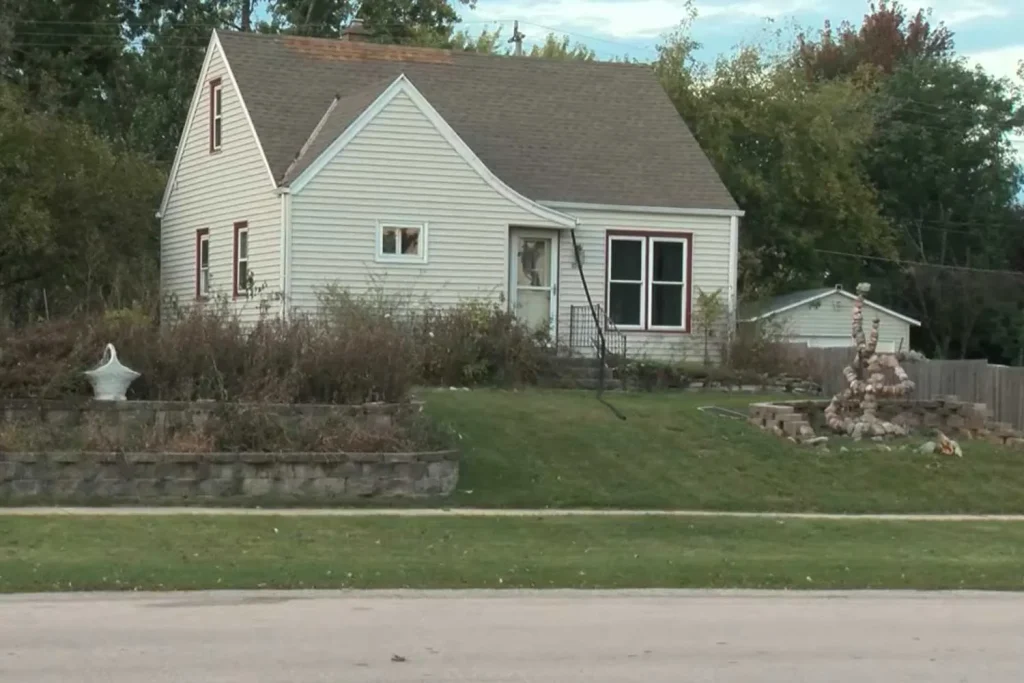Mother Suspected Her Daughter of Killing Her Dad 7 Years Ago — Now the Daughter Stands Accused of Bludgeoning Her Mom to Death
It was supposed to be a quiet afternoon in Milwaukee, until everything changed. On October 12, 2025, 64-year-old Carrie Zettel was found dead in the backyard of her south-side home, the victim of a brutal attack. The one arrested for the crime was none other than her own daughter — 29-year-old Lauren Spors — who now faces first-degree intentional homicide charges after what investigators say was a vicious beating with a large rock.
The case reads like a tragedy with years-long roots. Carrie had long suspected Lauren’s involvement in the 2018 death of her husband and Lauren’s father, Jeffrey Spors. She even filed a restraining order, alleging Lauren had struck Jeffrey with heavy decorative bottles and threatened his life. But the death was ruled accidental at the time, linked to over-medication rather than foul play. That decision weighed heavily on Carrie, who felt she couldn’t let the matter go.
According to the criminal complaint and multiple local news reports, someone in the neighborhood called police on that Sunday afternoon after sighting Lauren pacing in front of her mother’s home and then standing over her mother, striking downward with an object. Officers arrived and found Carrie’s body covered by a blanket and a four-pound rock, stained with blood, lying nearby. Lauren was observed with blood on her hands, feet, and face.

What makes the case especially haunting is the long history of domestic struggle and mental health concerns. Carrie’s friends and neighbors say she had repeatedly sought help, and often expressed fear for her own safety. One longtime friend recalled Carrie’s voicemail only hours before the attack: Lauren had shown up banging on doors and windows, and Carrie had called 911. “Lauren was here just now, pounding on the doors, the windows … I called 911,” Carrie said in that message.
Investigators say that Lauren had a documented history of mental-health issues, including schizophrenia, according to neighbors and criminal filings. Carrie had long worried for her daughter and for her family. “Carrie even said, ‘Maybe if she kills me, she’ll get the help she needs,’” the friend remembered. The legal system had engaged with the family before: Lauren had a restraining order filed against her in 2018 and was previously found incompetent to stand trial in a 2020 misdemeanor case involving battery and theft.

Now, Carrie’s death has left a community in mourning. She was known for her kindness, support of mental-health initiatives, and warmth to neighborhood children — “Grandma Carrie,” many affectionately called her. Her son and friends held vigil services, trying to make sense of the senseless and remembering her as someone who always looked out for others.
As for Lauren, she remains in custody with bond set high, facing the possibility of a life sentence if convicted. The homicide charge includes a domestic-abuse-threat modifier, which speaks to the ongoing patterns of violence across years in that home. The next court hearings will dig into her mental-health status and the events leading up to that fatal day.
For now, the story leaves us with a painful question: how many warning signs did we miss? Carrie raised the alarm for years. Her pleas went unheard. Her fears were real. And now, the person she tried to protect has become both the accused and the focal point of grief.
This case isn’t just about a crime — it’s about the collapse of trust, the breakdown of a family, and the collective failure of systems meant to protect. At the end of it all, a mother is gone, a daughter is jailed, and a community is left grappling with what should have been preventable.



